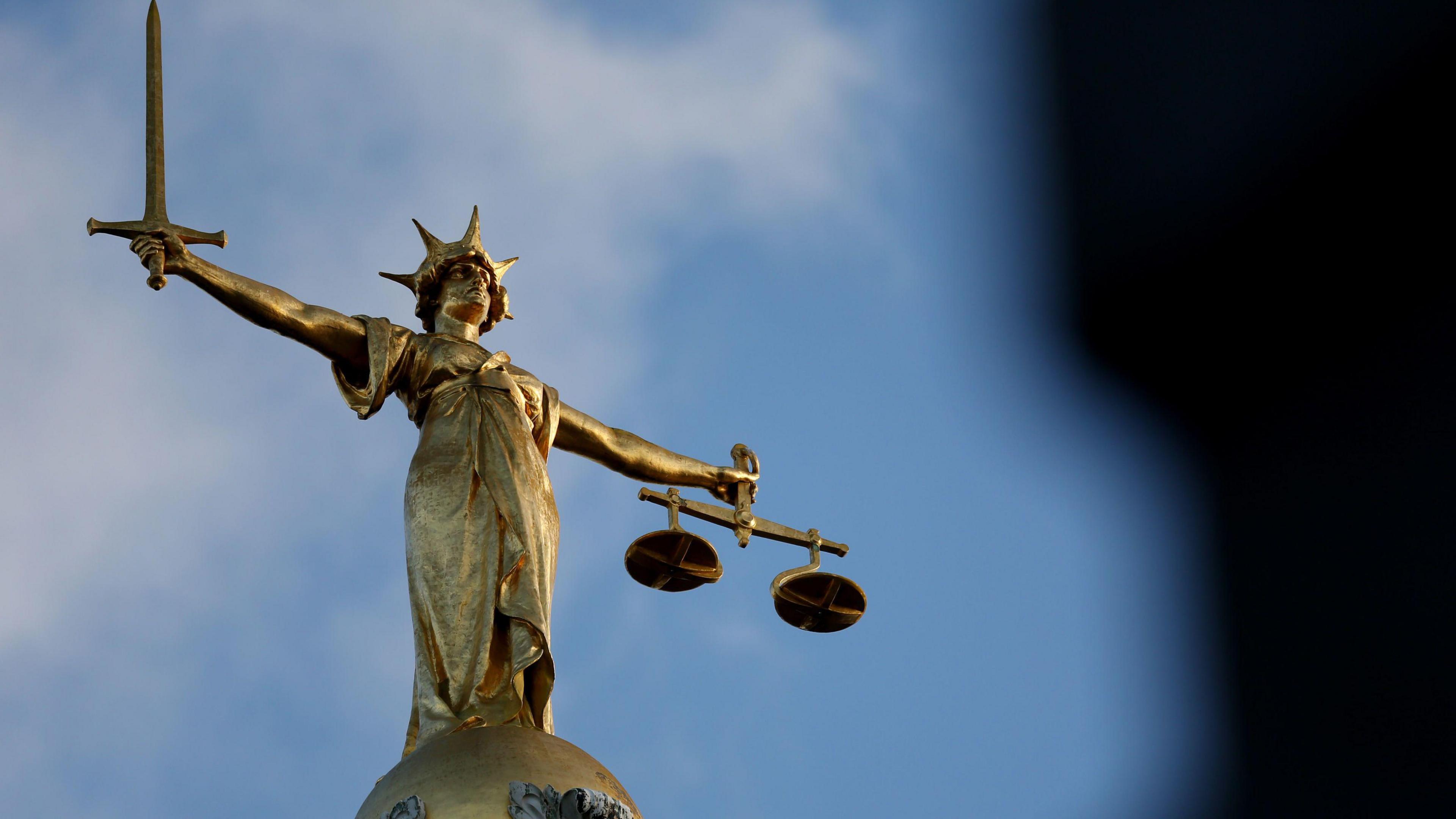Victim cannot sue after abuser told new address

Sussex Police and the Crown Prosecution Service are protected by immunity given to barristers, the Court of Appeal has ruled
- Published
A domestic violence victim cannot sue a police force and the Crown Prosecution Service (CPS) after her new address was disclosed to her abuser by a barrister in court, the Court of Appeal has ruled.
The woman, known only as XGY, reported her former partner, known as DYP, to Sussex Police after their relationship ended in 2019.
The court heard he was accused of rape, physical and sexual assault, threatening to kill her and threatening to throw acid on her and her family.
But her new address in Hampshire was disclosed to her abuser by a barrister during a court hearing, which forced her to move again.
XGY sued Sussex Police and the CPS, claiming that the incident had "worsened her depression and post-traumatic stress disorder".
A judge rejected her claim, finding both bodies were protected by the immunity given to barristers for things said and done in court.
However, a High Court judge later allowed her appeal against the decision.
The CPS and the police took the case to the Court of Appeal in June, with Lady Chief Justice Baroness Carr, Dame Victoria Sharp and Lord Justice Coulson allowing their challenge and dismissing XGY's claims for a second time in a ruling on Wednesday.
They said while the disclosure of XGY's then address "should not have occurred" but "the words of the CPS advocate were spoken indubitably 'in the ordinary course of court proceedings' and so covered by the core immunity".
'Core principle of immunity'
The judges said the police were covered by the "extension" of the immunity given to advocates in court.
The judges said after XGY and DYP's relationship ended, she reported him to the police the following day, and he was arrested and bailed.
Meanwhile, she left her home in West Sussex and stayed with a relative in Surrey, before moving to a women's refuge and then to the address in Hampshire, which she disclosed to the police.
In April 2020, DYP appeared at Brighton Magistrates' Court, accused of breaching his bail.
After police provided the new address to the CPS, a barrister asked the court to impose a bail condition that DYP be prevented from attending, thereby disclosing where she lived.
He was later convicted of six counts of common assault.
XGY sued Sussex Police and the CPS in 2022, claiming both bodies had breached her human rights.
A judge at Winchester County Court dismissed her claims in 2023, but this was overturned by Mr Justice Ritchie last year.
Both bodies took the case to the Court of Appeal, with the CPS claiming that Mr Justice Ritchie "failed to apply settled law" about immunity for the words and actions of advocates.
Following the ruling, Barbara Mills KC, chairwoman of the Bar Council, said: "In our intervention, we sought to protect the core principle of immunity from liability for advocates and argued that those who participate in court proceedings should be able to speak freely, without fear of being sued."
Additional reporting by PA
Follow BBC Sussex on Facebook, external, on X, external, and on Instagram, external. Send your story ideas to southeasttoday@bbc.co.uk, external or WhatsApp us on 08081 002250.